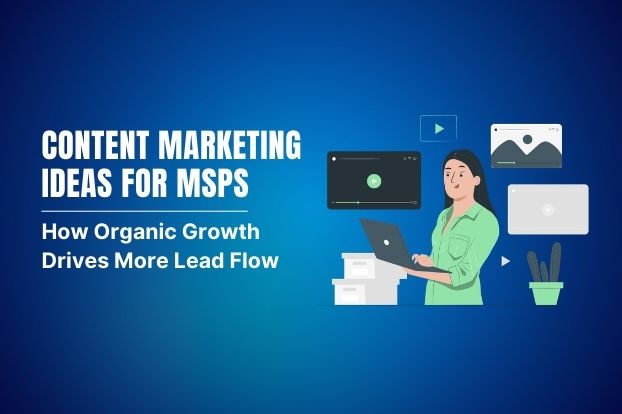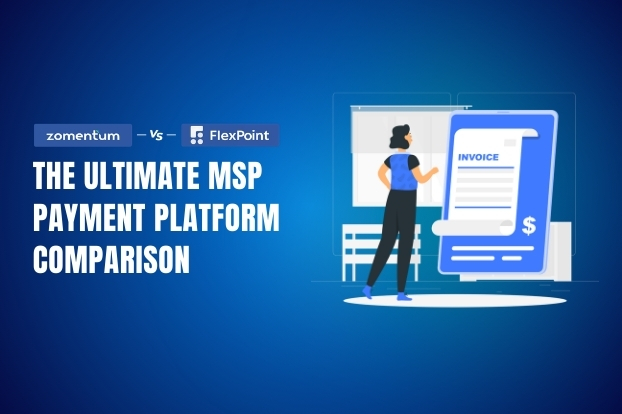Benefits of Outsourcing IT With A Managed Service Provider

Introduction
There has been a long-drawn-out debate on what’s more practical, scalable, and cost-efficient for your business — setting up your own in-house IT staff or outsourcing it to a managed service provider (MSP). If you are a large enterprise, it may seem wise to set up your own IT staff in house. But if you do not have the might of a large enterprise, then it is in your best interest that you outsource to an MSP. And here’s why!
Lower IT costs and manage budget better
Contrary to a popular belief, outsourcing IT to an MSP saves your business money. Here’s a recent research by Bartech Group that shows the percentage of savings based on specific functions within an organization.

Image source: https://www.bartechgroup.com/home/pdf/Bartech_WhitePaper-MSP(R11).pdf
Consider this — an in-house IT team comes with upfront (and hidden) costs including hiring full-time employees for the team, infrastructure, hardware and software that comes with their own maintenance and subscription costs respectively, just to name a few.
The technological expertise is limited to the IT professional you have hired. Chances are that they might not be efficient enough to handle business continuity or disaster recovery plans. They might not be able to diagnose network security issues, setting up a data center or upgrading an existing server. It is also expensive to train the in-house IT team regularly and that training might not be put to efficient use considering the existing IT workload.
On the other hand, when you outsource your IT functions to a managed service partner, you benefit from having the right kind of expertise for any given task at a comparatively lower cost. Hiring in-house staff is expensive while hiring temporary staff is ineffective because they don’t meet your expectations.
Operational costs are reduced to a great extent. Since MSPs use a subscription-based model, outsourcing converts your fixed IT cost into a variable cost. This, in turn, allows you to budget your IT costs effectively. In short, you don’t pay for the entire package; you only pay for what you want.
Access to trained, experienced, certified IT professionals
How do you know that the people you are hiring as your in-house IT staff have the required skills and certifications? How do you know that they are the ones for the job? How do you qualify an IT professional? Outsourcing lets you focus on the right kind of expertise and experience for your IT requirements.
As you expand your company, the scope of your IT function also expands. Your existing IT staff might not be equipped with the right expertise to handle the new responsibilities that come with the expansion of your business. On the other hand, your in-house IT staff might find it difficult to focus on their primary tasks as they have to take on newer responsibilities. Hence, it is smart to hand over your IT management to an MSP and let your non-technical employees be more productive at their jobs. This way you can focus all your attention on revenue-generating operations.
When you outsource your IT functions to an MSP, you will have all the resources you need to kick start new projects. To do this in-house, might take months (and a lot of money) because you need to hire the right IT staff, on-board and train them, and provide the support they need to scale the new project.
Additionally, in-house IT staff can only address problems that have occurred in the past. But with IT outsourcing, you will be working with experts who are familiar with a wide range of IT issues that companies encounter each day. And when a new problem occurs in your business, the MSP already knows exactly what to do to fix it quickly and at a lower cost. This is possible because MSP’s IT professionals are constantly trained and certified in the latest technology.
Effective vendor management
You need tools for various functions of your organization, more so for the IT department. But how do you know which software, hardware, or vendor is best for your business? Let’s say you need antivirus software. To start with, there are 5 types of antivirus software, with a ton of vendors under each type. Imagine the amount of time spent in evaluating these options before deciding on an antivirus software for your organization. Scary, isn’t it?
With an MSP in the picture, choosing IT tools will be a piece of cake. MSPs know all about the tools in the market and can determine the best options for your business.
If you are already using a set of tools, the MSP will be able to manage the vendor on your behalf. If you encounter any issues along the way, they will be able to quickly jump into action and resolve it. They will be your SPOC and escalate issues to the right vendor, track progress on the remedial measures taken by the vendor, and see through it to resolution.
What is so difficult about managing vendors, you ask? Well, when you have employees that lack the right experience to manage the tools, and when there are multiple vendors to coordinate with, it becomes a difficult juggling act. You drop one glass ball and it’s the end of the act. It is then sensible that you leave it to the experts — a managed service provider.
Agility and scalability
At the heart of scalability rests the fact that you should be able to pay for what you use. That’s precisely what a managed service provider offers your business. You can enjoy the flexibility to outsource only those projects that might be expensive if managed internally.
You can draw on specific expertise required for certain projects without having to spend on hiring a full time IT professional to do the job. Additionally, during peak seasons, it is not practical to invest in technology or hire additional resources. Instead, you can fall back on the managed service provider. And when the peak season is over, you can scale down to a smaller set of resources.
Another benefit of outsourcing is access to the latest technology (minus the cost). There are constant changes in technology and it is impractical to play catch up by investing in newer technology. MSPs explore new enhancements and are always prepared to support different clients’ requirements. By outsourcing to an MSP you have easy access to the latest technology without having to spend on purchasing it. No capital expenditures!
Security
A secure environment is a trusted environment. This is crucial to any business. You need to be sure that your firewall is up to date, you have a DMZ installed, run regular audits on your hardware, software licenses, and servers, etc. Apart from that, as a business, it is only natural that you take payments from customers through different payment methods such as credit and debit cards, gift vouchers, wire transfers. Any form of transaction comes with a need for due diligence.
When you outsource this to a managed service provider who is familiar with Payment Card Industry (PCI) security standards, you can be sure that you have minimized the risks for your business and your customers. The MSP will implement necessary strategies to ensure that sensitive and competitive information is kept secure and that your business is compliant.
Closing thoughts
IT outsourcing to an MSP can grow your business, save money, and keep up with the latest technology. However, it is important that you choose the right managed service provider, but more of that in another post. Have you outsourced your IT to an MSP? If so, what has been your experience like? Let us know in the comments below.
Suggested Blogs

Content Marketing Ideas for MSPs: How Organic Growth Drives More Lead Flow
.jpg)
10 Best Quoting Software Tools for MSPs and IT Service Providers

